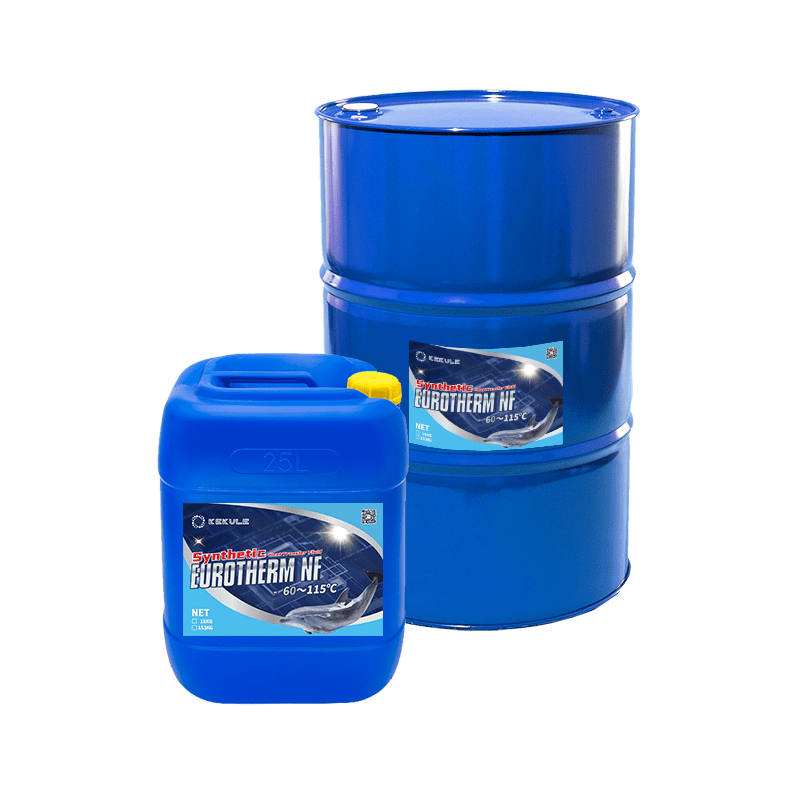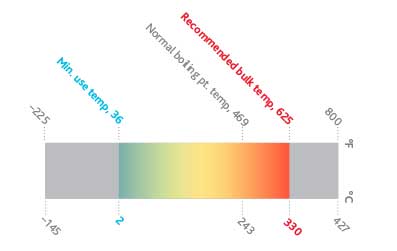Key Benefits of Using a High-Performance Heat Transfer Fluid
Key Benefits of Using a High-Performance Heat Transfer Fluid
Blog Article
How Warmth Transfer Fluid Adds to Lasting and Economical Procedures
In the modern commercial landscape, the duty of heat transfer fluids (HTFs) in promoting lasting and cost-efficient operations can not be overemphasized. These fluids are crucial in maximizing thermal management systems, therefore dramatically enhancing power efficiency and decreasing functional costs. heat transfer fluid. The environmental advantages of innovative HTFs, with their high thermal security and reduced poisoning, are indisputable.
Recognizing Warmth Transfer Liquids
In the realm of thermal administration, warm transfer liquids (HTFs) serve as important representatives for transferring thermal power from one place to one more. These liquids play a pivotal role in numerous industrial applications, including chemical handling, power generation, and HVAC systems. HTFs are particularly crafted to run within a wide variety of temperature levels, effectively promoting the transfer of heat while maintaining a steady thermal account. Their ability to work under extreme problems-- whether high temperature levels or cryogenic degrees-- makes them important in atmospheres requiring precise thermal control.
The make-up of warm transfer fluids can differ dramatically, including options such as mineral oils, artificial oils, glycols, and molten salts. Each kind supplies distinct benefits, such as improved thermal security, reduced thickness, and high boiling factors, which are chosen based upon specific operational requirements. The selection of HTF effects not only the performance of warmth transfer yet also the longevity and security of the system in which it is utilized.
As industries continue to innovate, the growth of innovative HTFs, characterized by their enhanced thermal conductivity and reduced environmental influence, is important for satisfying the needs of contemporary thermal monitoring obstacles.

Enhancing Power Performance

Improving power performance has come to be a vital worry across various sectors, motivating a more detailed exam of warm transfer fluids' role in enhancing thermal monitoring systems. These liquids are integral to keeping the wanted temperature in processes, thus decreasing power waste and enhancing total system effectiveness. By selecting an ideal warmth transfer fluid, industries can significantly enhance their energy efficiency, leading to reduced energy intake.

Advanced formulas of warmth transfer liquids have actually been developed to hold up against extreme temperatures while preserving security and efficiency. Improving power performance through optimal warm transfer liquid option is not just a technical necessity however additionally an ecological vital.
Lowering Operational Costs
Operational expenses are a substantial factor to consider for industries seeking to preserve competitive benefit, and the choice of warmth transfer liquid plays a vital role in cost administration. Picking a suitable warm transfer liquid can bring about substantial expense savings by enhancing system efficiency and minimizing energy consumption. High-performance fluids reduce thermal deterioration, which consequently decreases the frequency of fluid replacement and downtime connected with maintenance, thereby lowering functional expenditures.
In addition, warmth transfer liquids with remarkable thermal stability and corrosion resistance look at this web-site extend the lifespan of tools. This lowers the demand for constant fixings and substitutes, which can be expensive and disruptive to operations. By buying top notch liquids, markets can accomplish long-lasting reductions in maintenance costs and boost the reliability of their systems.
Additionally, progressed warmth transfer fluids often display reduced viscosity at running temperatures, which improves pump effectiveness and reduces power usage in liquid flow. Many contemporary heat transfer liquids are engineered to operate properly over a large temperature array, lowering the demand for several liquid types, consequently streamlining supply demands and lowering associated expenses.
Ecological Influence Decrease
The press towards decreasing environmental influence has actually acquired momentum in sectors leveraging warm transfer fluids. Warmth transfer fluids (HTFs) play a crucial role in this change, providing opportunities company website to boost energy efficiency and lower discharges - heat transfer fluid.
Furthermore, the use of innovative warmth transfer fluids adds to enhanced system efficiency, lowering the general energy intake. This decrease not only results in price financial savings yet also lowers co2 discharges, helping in the fight against environment change. Liquids that are naturally degradable and recyclable even more enhance sustainability initiatives, as they reduce waste and promote round economic situation practices.
In addition, integrating HTFs right into closed-loop systems protects against fluid loss and contamination of the surrounding atmosphere. This method ensures that liquids are reused, lowering the demand for brand-new resources and restricting waste generation. By welcoming these ecologically mindful techniques, industries can significantly lessen their eco-friendly effect while preserving high operational efficiency, aligning with worldwide sustainability objectives and governing demands.
Choosing the Right HTF
Selecting the appropriate heat transfer liquid (HTF) is an essential action in progressing ecological sustainability within commercial processes - heat transfer fluid. An optimal HTF must possess a high thermal capability, low viscosity, and high thermal conductivity to ensure efficient heat transfer.
This makes sure durability and minimizes click to read maintenance expenses. The liquid ought to be safe and biodegradable, reducing its environmental impact and ensuring compliance with ecological policies.
Final Thought

Report this page